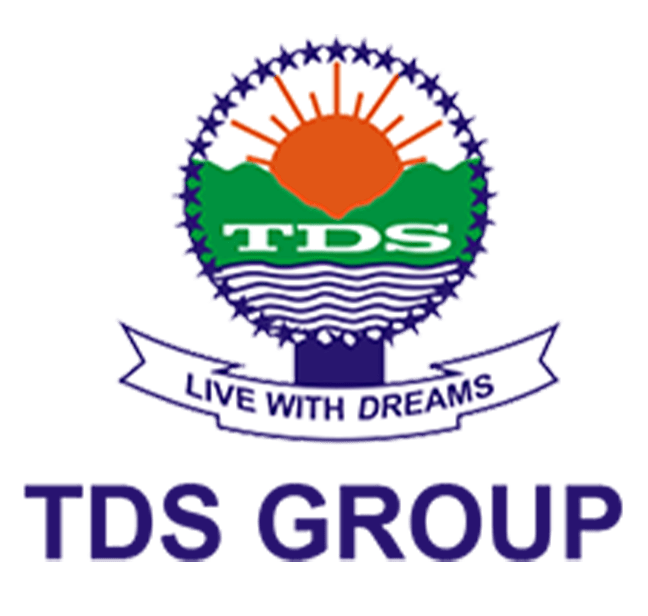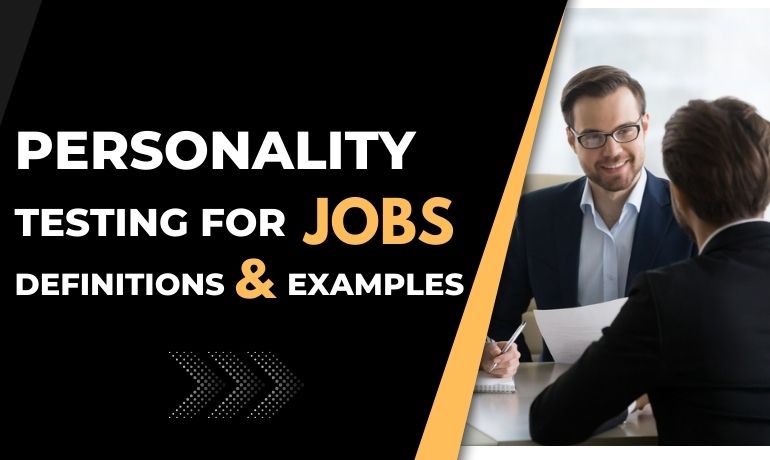Personality Testing for Jobs: Definition & Examples
Welcome to the world of TDS Group, where we believe that a successful career starts with understanding your unique personality traits. In today’s competitive job market, it’s no longer enough to simply have the required skills and experience. Employers are now looking for candidates who fit their organization’s culture and can work effectively with their team. That’s where personality testing comes in. In this blog post, we will explore the concept of personality testing for jobs, its definition, and examples of how it can help you land your dream job. So, let’s dive in and discover how TDS Group can help you unlock your full career potential.
What is personality testing?
Personality testing is a method used to assess an individual’s personality traits, values, interests, and behaviors. The goal of personality testing is to gain insight into an individual’s personal and professional characteristics and to determine how those characteristics may impact their performance in a job.
Personality tests are designed to be objective and are typically administered standardized. The results of a personality test can help employers make informed decisions about which candidates are the best fit for a particular role.
Benefits of Personality Testing
1. Self-awareness
Personality tests give individuals insights into their unique traits, characteristics, and behavior patterns. This self-awareness allows individuals to understand themselves better, their strengths, and areas for personal development.
2. Career guidance
This can help individuals identify their natural inclinations, preferences, and strengths, which can be valuable in career choices. Understanding one’s personality type can guide individuals toward careers that align with their interests and strengths, leading to greater job satisfaction and success.
3. Team building
This can be used in a workplace setting to build effective teams. By understanding the personality profiles of team members, managers can create balanced and complementary teams where individuals’ strengths can be leveraged and potential conflicts or gaps in skills can be addressed.
4. Improved communication
Personality tests can enhance communication among individuals by highlighting different communication styles and preferences. This knowledge allows for better understanding and adaptation when interacting with others, resulting in more effective and harmonious personal and professional relationships.
5. Conflict resolution
Personality tests can aid in resolving conflicts by providing a framework for understanding different perspectives and approaches. Recognizing and appreciating diverse personality types can increase empathy, better negotiation skills, and more constructive conflict resolution.
6. Personal growth and development
Personality tests offer opportunities for personal growth by identifying areas for improvement and suggesting strategies for development. With this knowledge, individuals can focus on enhancing specific skills, managing weaknesses, and developing a well-rounded personality.
7. Improved decision-making
Understanding one’s personality traits can assist in making informed decisions. Personality tests can give individuals insights into their decision-making styles, risk preferences, and problem-solving approaches. This knowledge can help individuals make better choices aligned with their natural inclinations and strengths.
8. Leadership development
These tests can be instrumental in identifying leadership potential and guiding leadership development programs. By assessing leadership qualities, strengths, and areas for growth, organizations can nurture and train individuals to become effective leaders.
9. Enhanced teamwork
The tests can foster better teamwork and collaboration by promoting appreciation and understanding of different working styles. Team members can recognize each other’s strengths, adapt communication approaches, and maximize the team’s collective potential.
10. Improved hiring and selection process
Personality tests can be utilized during hiring and selection to assess candidates’ suitability for specific roles and organizational cultures. Employers can make more informed hiring decisions by identifying personality traits relevant to job performance and cultural fit.
11. Personal fulfillment
Understanding one’s personality can contribute to overall personal fulfillment and well-being. When individuals are aware of their authentic selves and can align their lives with their natural tendencies, they are more likely to experience a sense of purpose, satisfaction, and happiness.
It is important to note that while personality tests can provide valuable insights, they should be used as one tool among others and should not be the sole determinant of a person’s abilities, skills, or potential.
Drawbacks of personality testing
While personality testing can be useful for employers, there are also some drawbacks. First, personality tests can be time-consuming and expensive to administer. Some candidates may feel uncomfortable or even discriminated against if asked to take a personality test.
There is also the risk of relying too heavily on personality testing in hiring. While personality testing can provide valuable insights into a candidate’s personality traits, it should not be the only factor considered when hiring.
How Does Personality Testing Work?
Personality tests can be administered in several ways, including online assessments, paper-and-pencil tests, and in-person interviews. However, there is no confirmed statement to call any personality test the Best Personality Testing for a Job.
Candidates are usually asked to answer questions designed to elicit information about their personality, values, and interests. The questions may be multiple-choice, true/false, or open-ended.
After the candidate completes the test, their responses are scored, and a report is generated that provides insight into their personality traits. The employer then uses this report to determine whether the candidate is a good fit for the job.
Examples of Popular personality tests.
There are several popular personality tests used in the hiring process, including:
1.The Myers-Briggs Type Indicator (MBTI)
The Myers-Briggs Type Indicator is one of today’s most popular personality tests used in personality assessments for hiring. It is based on the theory that there are sixteen personality types, each with its traits. The MBTI measures four different dimensions of personality: extraversion vs. introversion, sensing vs. intuition, thinking vs. feeling, and judging vs. perceiving. This test assesses an individual’s personality based on four dichotomies: extraversion vs. introversion, sensing vs. intuition, thinking vs. feeling, and judging vs. perceiving. The insights gained from this assessment can provide valuable information for employers when evaluating candidates for job suitability.
2. The DISC Assessment/ DISC profile
The DISC Profile is one of the best personality testing for jobs, as it measures four dimensions of behavior: dominance, influence, steadiness, and conscientiousness. This test is often used in sales and customer service positions to determine whether a candidate has the right personality traits. By assessing an individual’s personality based on these four behavioral traits, employers can gain valuable insights into a candidate’s suitability for specific job roles and organizational cultures. The DISC Profile provides a reliable and effective method of evaluating candidates’ behavioral tendencies, helping employers make informed hiring decisions.
3. The Big Five Personality Traits
The Big Five Personality Traits test is a powerful tool for personality testing for jobs, as it measures five broad dimensions of personality: openness, conscientiousness, extraversion, agreeableness, and neuroticism. This comprehensive test provides valuable insight into how a candidate will likely behave in a work environment. By assessing an individual’s personality based on these five dimensions, employers can make informed decisions about a candidate’s suitability for specific job roles and organizational cultures. The Big Five Personality Traits test is widely recognized and utilized in personality testing for jobs, providing valuable insights into candidates’ personality traits and potential job performance.
4. The Hogan Personality Inventory (HPI)
The Hogan Personality Inventory is a leading personality test for jobs that measures six dimensions of personality: adjustment, ambition, sociability, interpersonal sensitivity, prudence, and curiosity. This comprehensive personality testing for jobs provides valuable insights into how a candidate will likely behave professionally. By assessing personality based on these dimensions, the Hogan Personality Inventory enables employers to make informed decisions about candidates’ suitability for specific job roles and organizational cultures. With its seven primary scales, including adjustment, ambition, sociability, interpersonal sensitivity, prudence, curiosity, and learning approach, this personality test offers a comprehensive assessment for effective job candidate evaluation.
Conclusion
In conclusion, personality testing for jobs has become an important aspect of the hiring process in today’s competitive job market. TDS Group recognizes the significance of understanding an individual’s unique personality traits in building a successful career. Personality tests provide valuable insights into an individual’s characteristics, guiding career choices and fostering self-awareness. They also contribute to team building, improved communication, conflict resolution, and personal growth. However, it’s essential to use personality tests alongside other evaluation methods and avoid overreliance. The Myers-Briggs Type Indicator, DISC Profile, Big Five Personality Traits test, and Hogan Personality Inventory are popular personality tests that help employers make informed hiring decisions.






